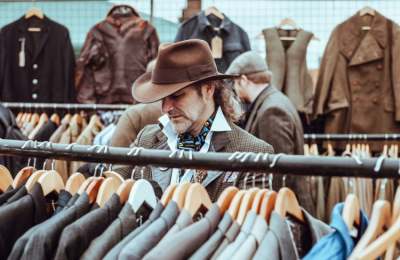In this guide, we explore 29 specialist sustainable clothing companies which show the mainstream brands how sustainable clothing could be done. We look into aspects such as the materials they use, their practices concerning workers' rights within the supply chain, and their stance on animal rights.
Notably, for the first time, we have rated eight companies exclusively dedicated to selling secondhand and upcycled clothing.
Although a few have shops on the high street, all the companies in this guide sell via online shops or platforms which means that people anywhere can choose to buy them.
To find out how ethical brands like Lucy and Yak, Oxfam, Vinted and Bam are, read on!





